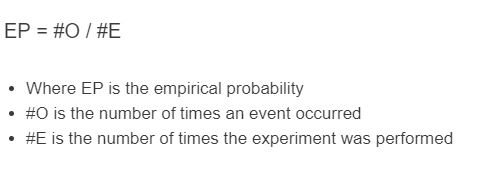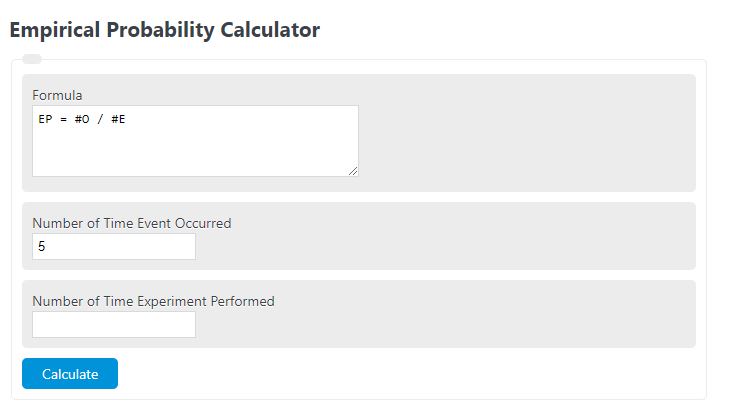Enter the number of times an event occurred and the number of times the experiment was performed to calculate the empirical probability.
- Dice Probability Calculator
- Coin Flip Probability Calculator
- Compound Probability Calculator
- Overlapping Probability Calculator
Empirical Probability Formula
The following formula is used to calculate an empirical probability.
EP = O / E
- Where EP is the empirical probability
- #O is the number of times an event occurred
- #E is the number of times the experiment was performed
To calculate an empirical probability divide the number of times an event occurred by the number of times the experiment was performed.
Empirical Probability Definition
An empirical probability is a chance that an event occurs during a given empirical experiment.
Empirical Probability Example
How to calculate empirical probability?
- First, determine the number of time the experiment is performed.
For this example, we will say the experiment or test was performed 10 times.
- Next, determine the number of events.
Measure the number of positive or successful outcomes that occurred during those 10 experiments. We will say that there were 5 events.
- Finally, calculate the empirical probability.
Using the formula we find the probability to be 5/10 = .5 = 50%.
FAQ
Empirical probability is just normal probability but applied to empirical situations, such as science experiments.

